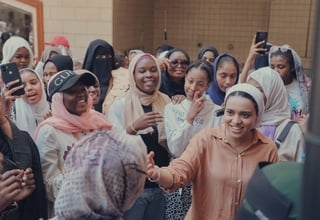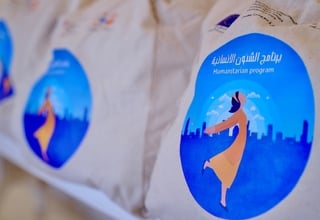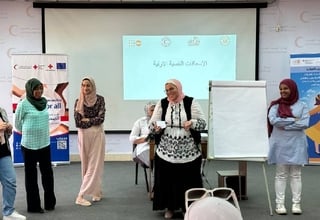Programme Area: Humaniatrian response
National Partners: Ministry of health
Location: Egypt
Year: 2015
Duration: 2015
Programme overview:
The humanitarian programme at UNFPA- Egypt has responded to several crises in the region in recent years, including, Libya crisis in Salloum and Syrian refugee crisis providing essential support to reproductive health and protection services. Currently the programme aims to provide effective and rapid implementation of interventions to Syrian refugees. The programme main focus is provision of comprehensive SRH services; and prevention and/or mitigation of SGBV risk and consequences among Syrian refugee population.
UNFPA Egypt has been involved in the Syrian Crisis since the second half of 2012. Since then the program has supported various initiative including mainstreaming Syrians into public Primary Health Care in Alexandria, Damietta and Greater Cairo. In addition, UNFPA supported several safe spaces for youth and women, awareness campaigns, key training for healthcare providers and supplied post-exposure kits to SGBV survivors.
Through a resilience-based approach, efforts focused on governmental services to adapt to the influx of Syrian refugees, and establish community outreach interventions targeting most vulnerable women and young people.
In so doing, UNFPA has adopted an approach that involves the host communities as beneficiaries and seeks to strengthen the social cohesion between both locals and Syrians. This aims to integrate the Syrian refugees within the host communities and reduce/pre-empt any tensions. Throughout 2014 and first quarter of 2015, UNFPA was able to support a range of services and awareness activities that covered Cairo, Giza, 6th of October, Damietta and Alexandria.
Egypt's situation:
The UN has declared the Syrian crisis the worst and largest humanitarian emergency in the 21st century. Since the beginning of the crisis over 200,000 lives have been lost, over 7.6 are displaced within Syria & 4 million refugees have fled to neighbouring countries.
Egypt is the only non-bordering country to host Syrian refugees in considerable numbers in the region. In April 2015, an approximate figure of 250,000 Syrians were in Egypt due to the crisis, out of which, 118,512 are registered through UNHCR. Half of those registered are women, out of those, more than half are in reproductive age.
UN agencies, including UNFPA and various NGOs struggle to respond to the refugee needs in Egypt with the prolongation of the crisis and the decreasing financial support. High cost of healthcare and GBV risk remains one of the key challenges facing the refugee population in Egypt.
UNFPA interventions:
Given the primary focus of UNFPA on issues of sexual and reproductive health, and gender based violence, the majority of projects require cross-cutting interventions and inter-sectoral collaboration.
In terms of health, UNFPA has succeeded, in collaboration with Egyptian Ministry of Health, UNHCR, UNICEF and WHO to carry out service mapping of Primary Health Care (PHC) facilities serving Syrian population. Since the Egyptian government granted free access to Syrians to those services, the mapping allowed for enhancing the delivery of quality SRH services through strengthening national structures in areas were Syrians exist the most. This support included training staff, and provision of essential equipment and commodities as needed. Through close coordination with MOH and other key partners, UNFPA Egypt has integrated community outreach with health response through training community health workers, health awareness campaigns, youth friendly spaces, etc.
In terms of protection, UNFPA has supported several safe spaces for youth and women in greater Cairo. UNFPA has supported training of over 200 healthcare providers serving Syrian population on GBV medical protocol and gender sensitive service provision. This goes in hand with UNFPA continued efforts for gender mainstreaming into all aspects of humanitarian programming in order to address gender and age specific needs. UNFPA is also the main provider of Post-Exposure- Prophylaxis kits to refugee medical care providers. We support awareness campaigns and behaviour-change communication material for issues of SRH and GBV.
In addition, UNFPA has supported training of Syrian and Egyptian community health workers in greater Cairo. This effort was collaboration with the Arab Medical Union and as part of larger plan to train Syrian refugee women to carry out health education through community outreach. A similar model was supported by other UN agencies in different districts; however UNFPA's mandate and technical expertise provided a wider scope of training. For instance, this was the only model where Syrian and Egyptians were trained simultaneously and included modules on GBV awareness and services in addition to psychosocial and mental health issues.
Particular focus is given to strengthening social cohesion through integrating Egyptians into most of outreach activities. In terms of youth activities, through coordination with Y-PEER, UNFPA has provided trainings on SRH and community involvement that brought together Syrians and Egyptian youth of both genders.
List of Partners & supported organizations:
- Ministry of Health and Population
- Egyptian Organization for Human rights
- Arab Medical Union
- Care International
- Terre Des Hommes- Egypt
- Rabetat Soureiyat
- Refugee Egypt
- Save the Children
- Medicines Sans Frontiers
- Caritas
- Youth for Development Association



